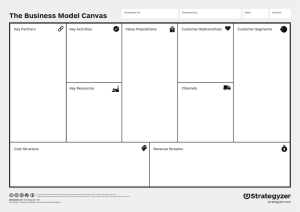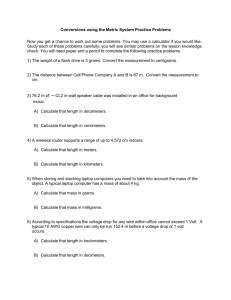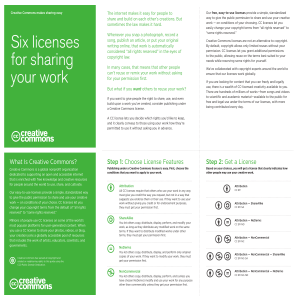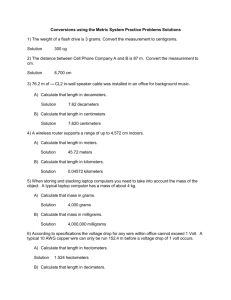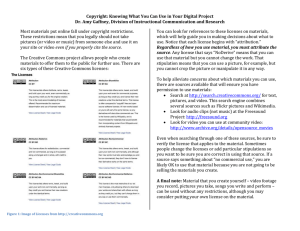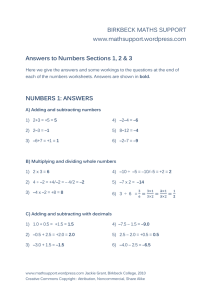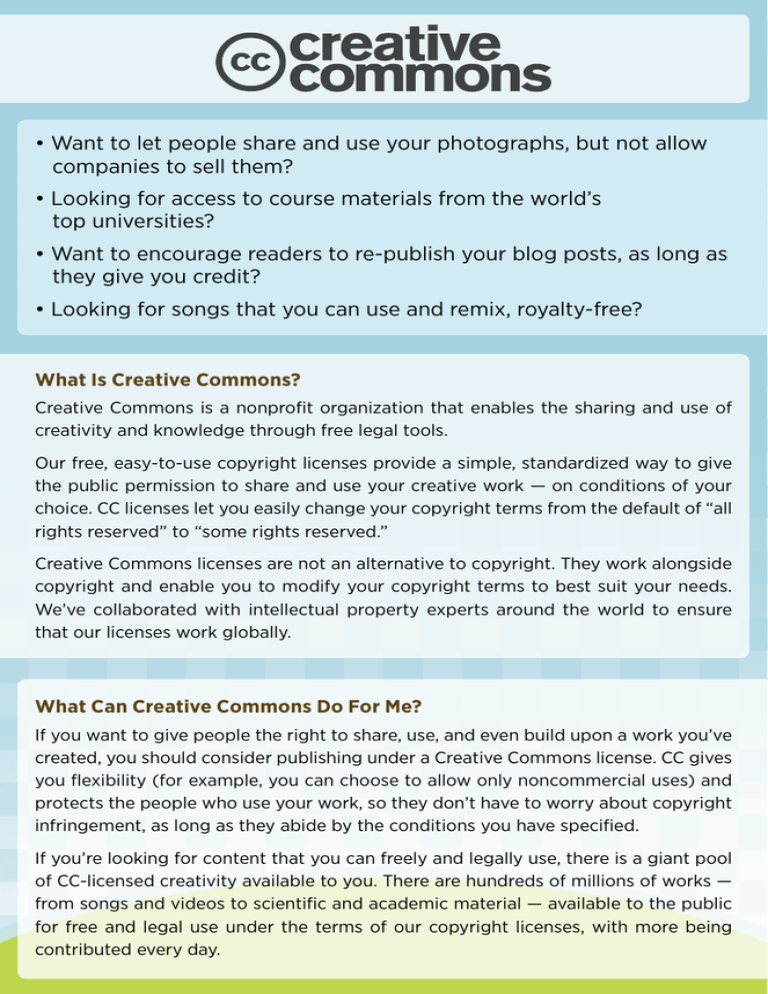
• Want to let people share and use your photographs, but not allow
companies to sell them?
• Looking for access to course materials from the world’s
top universities?
• Want to encourage readers to re-publish your blog posts, as long as
they give you credit?
• Looking for songs that you can use and remix, royalty-free?
What Is Creative Commons?
Creative Commons is a nonprofit organization that enables the sharing and use of
creativity and knowledge through free legal tools.
Our free, easy-to-use copyright licenses provide a simple, standardized way to give
the public permission to share and use your creative work — on conditions of your
choice. CC licenses let you easily change your copyright terms from the default of “all
rights reserved” to “some rights reserved.”
Creative Commons licenses are not an alternative to copyright. They work alongside
copyright and enable you to modify your copyright terms to best suit your needs.
We’ve collaborated with intellectual property experts around the world to ensure
that our licenses work globally.
What Can Creative Commons Do For Me?
If you want to give people the right to share, use, and even build upon a work you’ve
created, you should consider publishing under a Creative Commons license. CC gives
you flexibility (for example, you can choose to allow only noncommercial uses) and
protects the people who use your work, so they don’t have to worry about copyright
infringement, as long as they abide by the conditions you have specified.
If you’re looking for content that you can freely and legally use, there is a giant pool
of CC-licensed creativity available to you. There are hundreds of millions of works —
from songs and videos to scientific and academic material — available to the public
for free and legal use under the terms of our copyright licenses, with more being
contributed every day.
Step 1: Choose Conditions
Publishing under a Creative Commons license is easy. First, choose the conditions
that you want to apply to your work.
Attribution. All CC licenses require that others who use your work in any way must give
you credit the way you request, but not in a way that suggests you endorse them or
their use. If they want to use your work without giving you credit or for endorsement
purposes, they must get your permission first.
NonCommercial. You let others copy, distribute, display, perform, and (unless you
have chosen NoDerivatives) modify and use your work for any purpose other than
commercially unless they get your permission first.
ShareAlike. You let others copy, distribute, display, perform, and modify your work,
as long as they distribute any modified work on the same terms. If they want to
distribute modified works under other terms, they must get your permission first.
NoDerivatives. You let others copy, distribute, display and perform only original copies
of your work. If they want to modify your work, they must get your permission first.
Step 2: Get a License
Based on your choices, you will get a license that clearly indicates how other
people may use your creative work.
Attribution
Attribution — ShareAlike
Used by Wikipedia
Attribution — NoDerivatives
Attribution — NonCommercial
Attribution — NonCommercial — ShareAlike
Attribution — NonCommercial — NoDerivatives
This work is licensed under
http://creativecommons.org/licenses/by/3.0/
creativecommons.org

